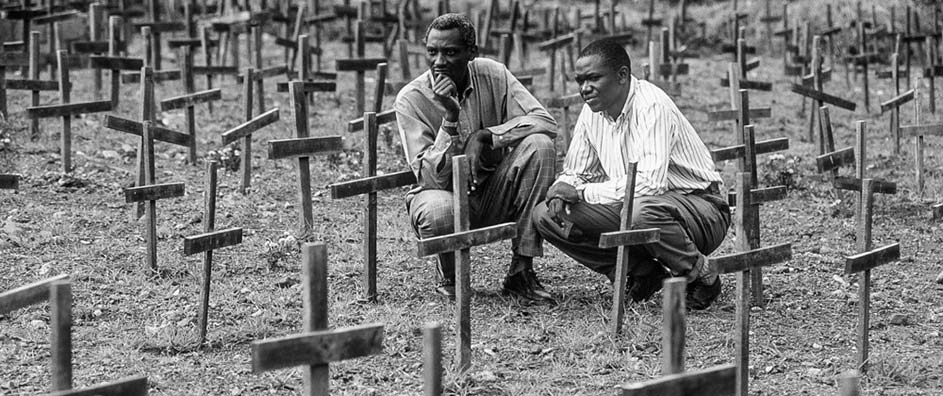In the contemporary discourse surrounding human rights, the Bahá’í teachings advocate for a profound moral imperative: the eradication of genocide. As our global society grapples with the haunting legacies of historical atrocities, the Bahá’í perspective offers not only a spiritual lens but also a compelling ethical framework that calls for collective action in the face of such egregious violations of human dignity.
At the core of Bahá’í teachings lies the belief in the oneness of humanity. This principle posits that all individuals, irrespective of their race, nationality, or religion, are parts of a single, interconnected human family. This interconnectedness underlines a fundamental responsibility to protect one another, especially those who are marginalized or threatened. The eradication of genocide, therefore, is not merely a political or social obligation; it is a deeply spiritual responsibility that transcends borders and doctrines.
An observation frequently echoed in sociopolitical discussions is the desensitization to violence and cruelty that appears to permeate modern society. Reports of atrocities often elicit a transient emotional response, followed by a disturbing return to apathy. This phenomenon raises a critical question: what underlying factors contribute to such dispassion? While modernity brings a myriad of distractions—social media, consumerism, and an incessant barrage of information—these should not detract from our moral culpability in addressing genocide. The Bahá’í teachings remind us that the act of witnessing suffering carries with it an obligation to act.
The Bahá’í writings elucidate that neglect of spiritual and moral duties leads to a collective deterioration of humanity. Genocide, which embodies the cruelest form of human depravity, challenges the very fabric of our ethical responsibilities. By turning a blind eye, society not only condones such violence but indirectly fosters an environment where hatred and division can thrive. Thus, the eradication of genocide necessitates a proactive stance; it is insufficient to merely condemn such acts. Genuine engagement in combating hate, promoting justice, and fostering understanding among diverse communities is essential.
The moral framework available through Bahá’í teachings emphasizes three critical areas for addressing the issue of genocide: education, dialogue, and action. Education plays a pivotal role in dispelling ignorance and prejudice. Through comprehensive curricula that celebrate diversity and promote empathy, individuals are better equipped to understand the subtle dynamics of discrimination and hatred that can lead to genocidal ideation.
Dialogue, meanwhile, serves as an invaluable tool for fostering understanding among disparate groups. The Bahá’í faith espouses the concept of “consultation,” a process that encourages individuals to engage in open, respectful conversations, thereby creating a safe atmosphere for the expression of differing viewpoints. Such discourse is crucial in dismantling the stereotypes and misconceptions that often precipitate enmity between communities. For dialogue to be effective, it must be conducted with a spirit of humility and a commitment to the truth.
Furthermore, tangible action is a cornerstone of the Bahá’í approach to eradicating genocide. Individuals are encouraged to align their personal capacities with broader societal needs. This encompasses advocacy for humanitarian laws, participation in community service, and support for organizations dedicated to human rights. The Bahá’í community has consistently championed these initiatives, reflecting a commitment to nurturing a world where justice prevails and iniquity is challenged.
It is also important to underscore the concept of collective accountability. The Bahá’í perspective emphasizes that the eradication of genocide is not solely the domain of governmental institutions or large organizations. Each individual bears responsibility for their conduct and choices, which collectively shape societal norms. Acknowledging this shared responsibility can lead to a powerful synergy in the fight against genocide. Change often begins at the grassroots level, where individuals educate themselves and advocate for transformation within their own circles.
Organizations and communities that embody the Bahá’í principles advocate for a holistic approach to eradicating genocide, engaging with international bodies, local governments, and grassroots movements to promote justice and reconciliation. By fostering relationships built on trust and respect, the Bahá’í community aims to mitigate tensions and conflicts that have historically led to violence.
The teachings also elucidate the imperative of fostering compassion through service. Acts of kindness can galvanize community coherence and counteract the divisive ideologies that often precipitate violence. Whether through volunteerism, mentorship, or simply lending an empathetic ear, acts of service can have a profound impact on societal dynamics and can serve to build bridges between disparate groups.
Moreover, advocacy on behalf of those who have suffered the consequences of genocide often reveals deeper layers of societal injustice. The narratives of survivors or victims’ families are not only poignant reminders of our collective failures but also catalysts for change. They provide insights into the human experience and highlight the urgent need for reform. By amplifying these voices, the Bahá’í community works to foster a culture that prioritizes empathy and action over indifference.
In conclusion, the Bahá’í teachings provide a profound framework for understanding the moral and spiritual responsibilities associated with eradicating genocide. In an era marked by unprecedented interconnectedness, the call to action is both urgent and universal. Through education, dialogue, and proactive engagement, individuals can contribute to the dismantling of the structures that facilitate hatred and violence. Ultimately, the endeavor to eradicate genocide is not solely about preventing future atrocities; it is about fostering an understanding that our collective humanity must be cherished, protected, and uplifted. The commitment to this ethos encapsulates the essence of what it means to be truly human.
